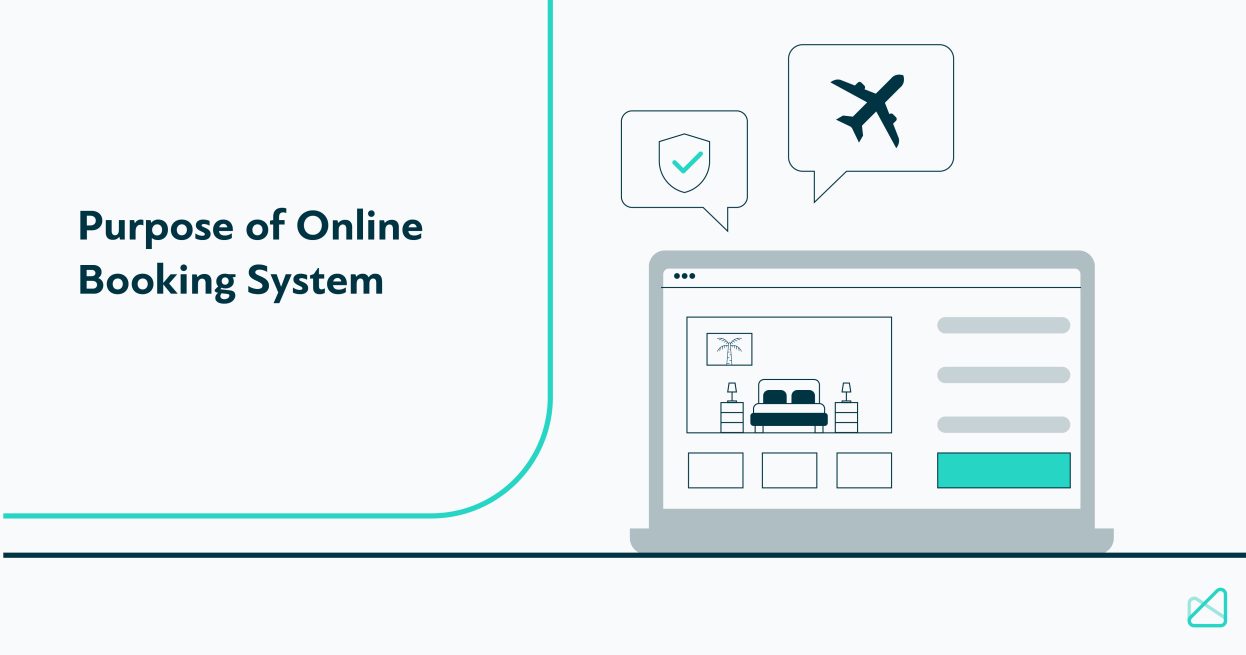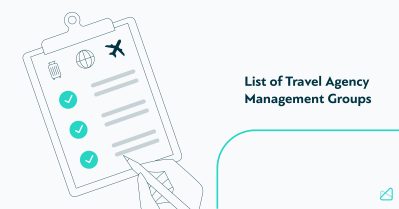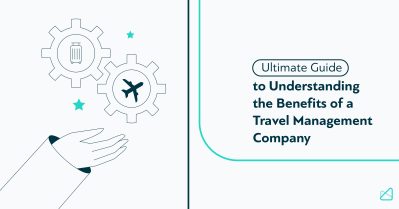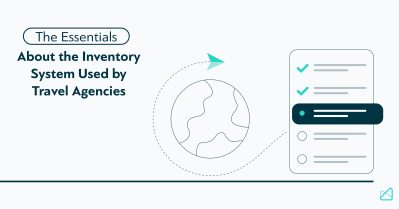What is an online booking system and how do I choose one?

Making purchases over the internet is a part of daily life. In the US, e-commerce’s share of total retail sales has doubled in the last six years, and is forecast to reach 13.7% in 2021.
And if there is one industry that ecommerce has truly revolutionised, then it’s the travel industry.
Globally, 82% of all travel bookings in 2018 were made online and without human interaction.
Although there is evidence of a recent upswing in the popularity of traditional face-to-face travel advice, it is clear that the overwhelming bulk of travel sales are made online.
By 2020, top online travel agencies (OTAs) offering their customers a ‘one stop shop’ – i.e. a service that allows customers to research, compare and purchase travel products all on the same website – are expected to represent 41% of the online digital travel market.
At the same time, as we highlighted in a previous post, travel agents are operating in an increasingly competitive marketplace and abandonment rates remain relatively high.
Globally, the average abandonment rate for OTAs is 93.96 percent, according to SaleCycle, so this is something to benchmark your own performance against.
Another source puts conversion rates for travel bookings made on mobile devices at just 0.7% compared to 2.4% for desktops.
Clearly, travel agents need to be doing everything in their power to make the booking process as simple and seamless as possible.
And that means making sure that your online booking system is the very best it can be and that it is able to adapt to future developments.
What is an online booking system?
Put simply, an online booking system is a software solution used for reservation management. Before such systems were available, in order to track bookings and manage inventory, travel agents had to work with a series of spreadsheets and enter the information manually.
Instead, an online booking system uses smart technology that eliminates the risks associated with manual input and human error. It simplifies the booking process for you and your customers by automatically updating processes such as payment scheduling, inventory management and tracking bookings.
It keeps customers on your website since they can see all of the available options and book the ones they need without switching between web pages or going to other websites.
Its automation capability also carries a range of further benefits for your business, such as generating reports and more.
How does an online booking system work?
Online booking systems are commonly sold as cloud-based software-as-a-service. The system is integrated into your existing website as well as your social media pages, if appropriate. There are two distinct areas of a booking system: the back-end and the customer-facing end.
The
back-end is commonly displayed as a dashboard management tool which
allows you to set-up, manage, and review your inventory, reservations
and bookings. The benefits here are that all the information about
your business can be viewed from the same location rather than having
to cross-reference between multiple spreadsheets.
Every
business has its own unique set of policies and so the initial set-up
of a new online booking system and customizing content and procedures
to your requirements will take some time.
However, once
all areas of the system are activated – including your booking
form, payment settings, notifications, report-writing and analytics
preferences – then automation kicks in and everything else is
straightforward.
The
customer-facing end of the booking system should ideally be a
two-step process: book and pay.
First-time customers will need to fill in a form where you capture their details, but after that subsequent bookings will be even quicker.
Online booking systems are designed to safely handle online payment processing and are protected by encryption and log-in and password protection.
Once a booking is made, the system automatically updates itself in real-time, and your customers can receive email or SMS notifications of any changes or simply be reminded of the upcoming reservation.
Uses of an online booking system
Travel booking software is much more than just the engine that allows your customers to pay online. In fact, your online booking system reaches into almost every aspect of your business operation.
At the customer-facing end, here are some of the key uses of an online booking system.
A wide range of filters to suit your customers’ needs
When booking a vacation or business trip your customers are likely to have a wide variety of needs and requests. Do they want to be near the Coliseum? Are they travelling with a pet? Children? Do they have special accessibility requirements? The best booking systems have an extensive list of filters to help customers quickly focus on what they are looking for.
Easy comparison display
Your online display of the choice of hotels or flights needs to be presented in a logical and clear way that allows the user to make comparisons easily and select the best choice for them.
Cross-selling
Your booking system needs to have the flexibility and scalability to add new products and categories, i.e. car rental options, visitor attractions, tours, theatre tickets, restaurant bookings. Customers must be able to add multiple items to their cart and purchase them all in one single transaction.
At the back-end, here are some of the key uses of an online booking system.
Sell a wide variety of inventory
Most software systems enable you to sell third party inventory in addition to inventory directly contracted by your agency.
For travel agents that serve both B2B and B2C customers, this means that they can aggregate their suppliers via XML API and offer flight inventory from GDS such as Amadeus and Travelport, for instance, and hotel stays from bed banks like Stuba, hotelbeds and gta … the choice is vast.
Make back-office operations simple
Booking software can automate routine admin tasks to increase overall employee efficiency. For example, once the initial parameters have been set as desired by your business, mark ups and margins can be generated automatically. You can set the system to automatically cancel bookings that have not been confirmed or make modifications if needed.
Create complex quotes efficiently and fast
Most booking software available allows your employees to create tailored quotes for complex itineraries in a fraction of the time it would take manually. All of the items in a quote can be booked in a single transaction and your employees can work with greater efficiency from a single platform rather than having to access multiple suppliers’ systems.
The benefits of an online booking system
Before we take a further look at individual features and how to choose an online booking system, here is a quick recap of the advantages an online booking system has over other forms of reservation management.
- Increased sales – At the risk of stating the obvious, online booking systems offer the ability to book and make payments 24/7. (Incidentally, Monday is the most popular day of the week to book travel and Saturday is the quietest.) Therefore, depending on your target markets, consider a booking and web system that is multi-lingual and allows customers to pay in their local currency.
- Reduces telephone-based sales – By reducing the amount of manpower necessary to secure a booking, internet-based reservation management systems can reduce your staffing costs.
- Streamlined and standardized payments – As soon as customers book their accommodation online, the funds are transferred directly into your account.
- Improved process management– Automates business operations by eliminating the need for manual data entry, managing bookings, monitoring inventory, creating reports, and processing payments.
- Streamlined reporting-Dashboard and reporting tools allow users to obtain insights into profits and sales, and create custom reports to influence future strategies.
Typical features of an online booking system
Online booking systems are commonly sold as comprehensive software packages specifically designed for travel agents. As highlighted above, these services include customer-facing features as well as back-office automation.
There are clear differences between a basic booking software system and something more complex and bespoke, says Germany-based software provider Regiondo. A look at the following summaries will help you understand what kind of system you need.
Basic online booking software requirements:
- Cloud-based
- Payment options (credit card, bank transfer, PayPal, deferred payment processing, cash)
- Inventory system
- Real-time booking
- User-friendly interface
- Customer support
- Integrations with an email marketing software
Complex online booking software requirements:
- SMS and email automation
- Language and currency settings
- Email customization
- Integration with third-party software (e.g. POS Systems, Rating Portals, etc.)
- Detailed sales reports
- Voucher and promo code management
- Distribution channel management
- Resource management
How to choose an online booking system
US-based software review and comparison website Capterra has a useful (and long) list of travel agency software providers that allows you to filter your searches depending on the key features of the software that you require. According to Capterra, most products in the market are priced on a per-month-basis (although other models may apply) and range from as little as $5.00 up to $125.00+.
When doing your research, one of your key considerations will be: how simple and easy is the booking process? The most successful ecommerce companies make the payment process extremely straightforward and easy, thus reducing the number of customers who get frustrated and give up.
Some cloud-based online booking systems may offer you a widget that is easy to add to your website. Although these are very easy to integrate, do bear in mind that they do not give you much control over the booking process. Customers are usually directed onto an external payment platform to complete their booking which means they have left your website. This must be avoided in favor of a bespoke solution that gives you full control throughout the sales funnel, allowing you to understand your customers behavior and better optimize your rate of conversion.
Another thing to consider is that if your travel agency or travel host agency is aimed at specific types of travelers (e.g. adventure holidays, business travelers), it is wise to select a software solution that’s designed for your niche, or can be customized to fulfill your business needs.
You will also want to choose a software provider with a solid reputation for high quality customer support and tour operator software if you offer this kind of service. Occasional glitches or technical failings are a fact of life. What kind of response and support does your contractor provide? Also if you are installing a new system, do it during your low season.
Currently trending in online booking systems
To round things off, here is a quick look at three trends which are getting talked about in the area of online booking systems and travel agent software.
Flexible payment options
Given the increasingly competitive marketplace that travel agents and tour operators find themselves in, there are some who believe that offering more flexible payment options and allowing customers to pay off purchases in a series of installments could be a way of standing out from the crowd.
AI and chatbots
Online travel agents (OTAs) are increasingly adopting the use of algorithms and artificial intelligence that have made the likes of Amazon and Google the most successful service companies in the world. The ability to make recommendations, upsell and truly engage with a customer’s needs on a personal basis is becoming a competitive necessity.
Chatbots or ‘virtual travel agents’ are an important part of this trend. Putting a chatbot onto your website will soon be within the reach of medium-sized travel agents and not just the likes of Kayak and Expedia.
Voice
This is probably not a trend for 2020 but something to bear in mind all the same. There is growing evidence that voice-based search and shopping using Alexa may one day become just as widespread as typing your queries into Google. We may be looking at a future where Alexa is an integral part of the process of planning travel, acting as a reassuring and helpful companion along the way.
Subscribe to
our newsletter
Yay! You are now
subscribed to our
newsletter
Mize is the leading hotel booking optimization solution in the world. With over 170 partners using our fintech products, Mize creates new extra profit for the hotel booking industry using its fully automated proprietary technology and has generated hundreds of millions of dollars in revenue across its suite of products for its partners. Mize was founded in 2016 with its headquarters in Tel Aviv and offices worldwide.
Related Posts

List of 32 travel agency management groups
6 min. Whether you are thinking of moving into the travel industry or you already own a business in this sector, the concept of travel agency management groups is a task worthy of analysis and study. Defining an effective business model for your retail travel agency is one of the key factors in optimizing sales […]

Ultimate Guide to Understanding the Benefits of a Travel Management Company
12 min. Managing and operating modern businesses often encompasses corporate travel. However, managing business travel is complex, especially with limited experience and resources. You must ensure that everything goes smoothly for the travelers while staying on top of the logistics and expenses. That’s why many organizations decide to outsource their travel management to a dependable […]

The Essentials About the Inventory System Used by Travel Agencies
11 min. While travel agencies have to overcome many challenges to remain competitive, there is one challenge in particular that all agencies need to overcome despite their size or target market. They need to excel as intermediaries between tour operators or travel product suppliers and consumers or travelers. The real question is, how do they […]